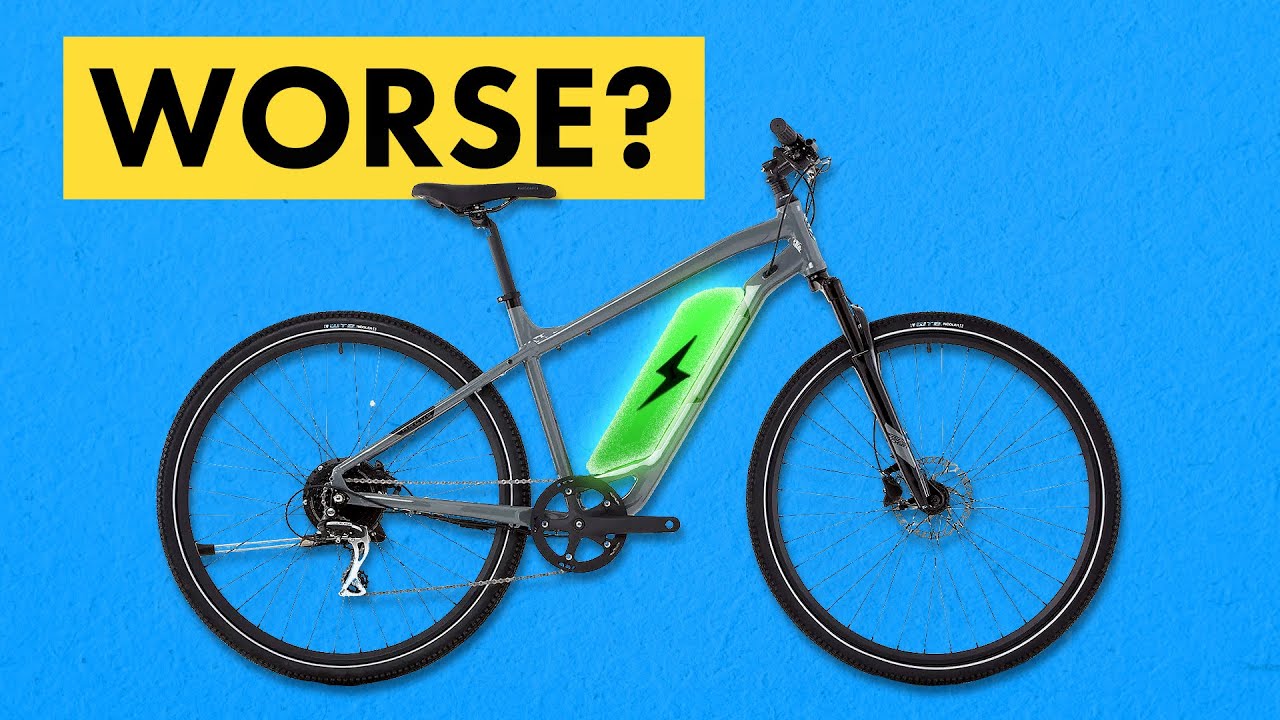I editorialised the title as the original was clickbait, but the video itself is quite good. Interestingly, e-bikes are claimed to have lower emissions than acoustic bikes, although it likely depends on diet (the author didn’t specifically compare a vegan diet between the two types but did indicate that vegan + electric is the most carbon efficient form).



I agree that the comparison between the two is quite complex (given the many side effects). But I was interested in this question and have done a few back-of-the-envelope calculations on the ongoing CO2 emissions:
Regular Cycling:
(Motor-only) E-bikes:
Based on this, it seems quite plausible that an E-Bike is significantly more efficient than a regular bike, even if the rider is a vegan. But, both are way better than all types of cars and even public transport.
References
again though. the e-bike rider is burning calories while riding. You basically have to add the calories they burned over the time of the commute because the normal cycling riders calories are not calories extra burned but just the calories they burned. So for example from your first link:
"Endurance exercise, like jogging or swimming, for more than 30 minutes can improve your fitness and help you lose weight. Running for half an hour can burn between 250 and 500 kilocalories. Swimming burns between 300 and 400 kcal in the same amount of time, with a front crawl burning up to 450 kcal. "
Needs to add in that sitting 30 minutes burns 66 calories in the example here https://captaincalculator.com/health/calorie/sitting/ They list fidgetting but riding the e-bike will be decently more than sitting in an office chair or car stilly. The variable from your linked article comes out a lot due to weight and extertion level. Bike commuting is usually done at a relaxed pace (unless your late!). I agree though with the top paragraph of @vividspecter
You’re right that the calories burned while riding the E-Bike would also need to be considered. The site you linked gives 220 kcal/hr for “Motor scooter, motorcycle” and 630 kcal/hr for “Bicycling, 12 - 13.9 mph, leisure, moderate effort”. This corresponds to 1960 kcal / 100km excess calories for biking (at 75kg weight). Going slower than that (which I certainly don’t do ;-) ) somewhat reduces the difference. But then the E-Bike is faster and you somehow have to account for that… I’m sure that people have written scientific publications on such considerations. My napkin math certainly doesn’t have that level of rigor.
Overall there’s certainly better ways to reduce your CO2 footprint than switching from a bike to an E-Bike. But perhaps E-Bikes are better than their reputation.